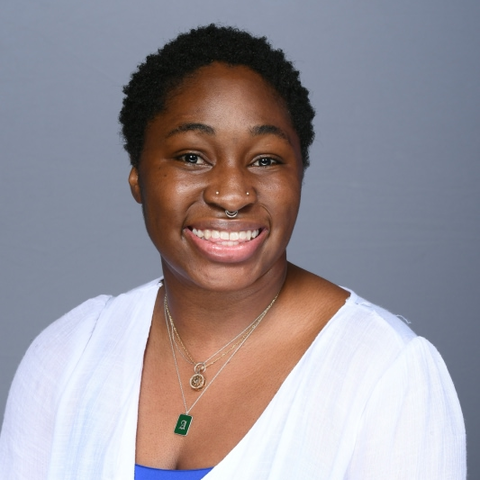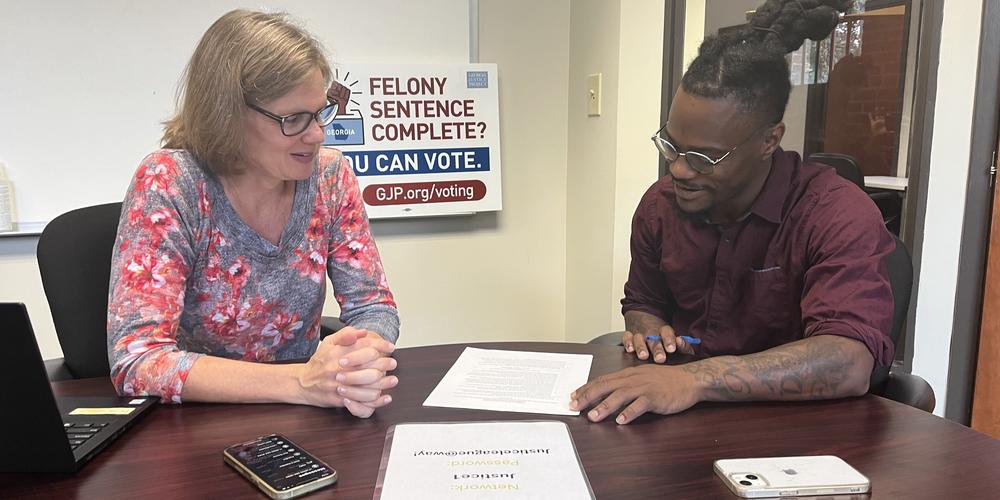
Caption
Ann Colloton and Dominique Harris work on outreach at the Georgia Justice Project to spread the word that people who have a felony conviction in their past may be eligible to vote.
Credit: Amanda Andrews / GPB News
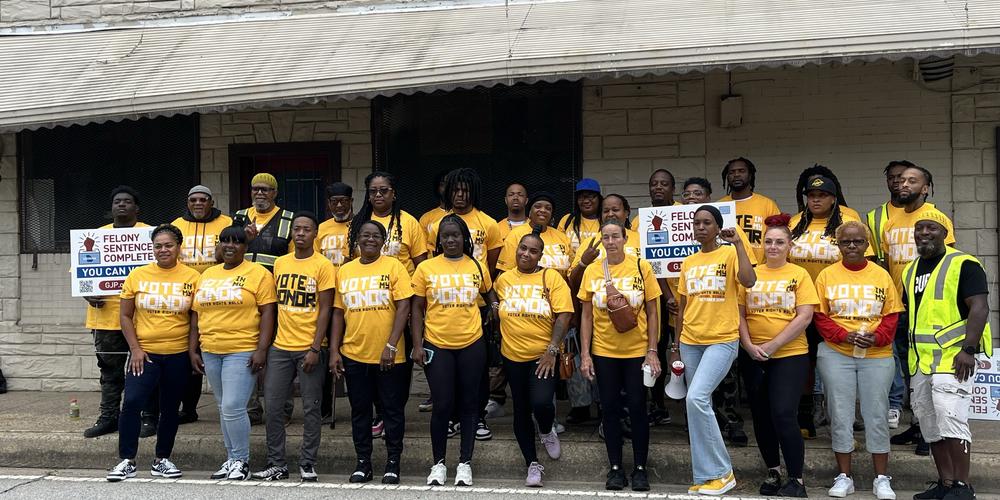
Caption
Organizers from Atlanta and Augusta pose for a group picture before canvassing in Augusta to register voters.
Credit: Amanda Andrews / GPB News
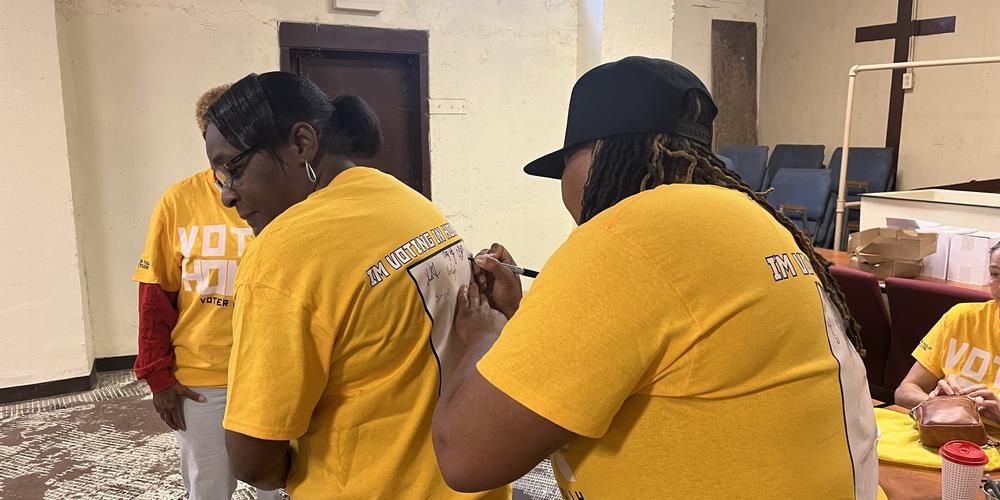
Caption
Ikethia Daniels signs the back of another canvassers shirt asking people to vote in her honor.
Credit: Amanda Andrews / GPB News
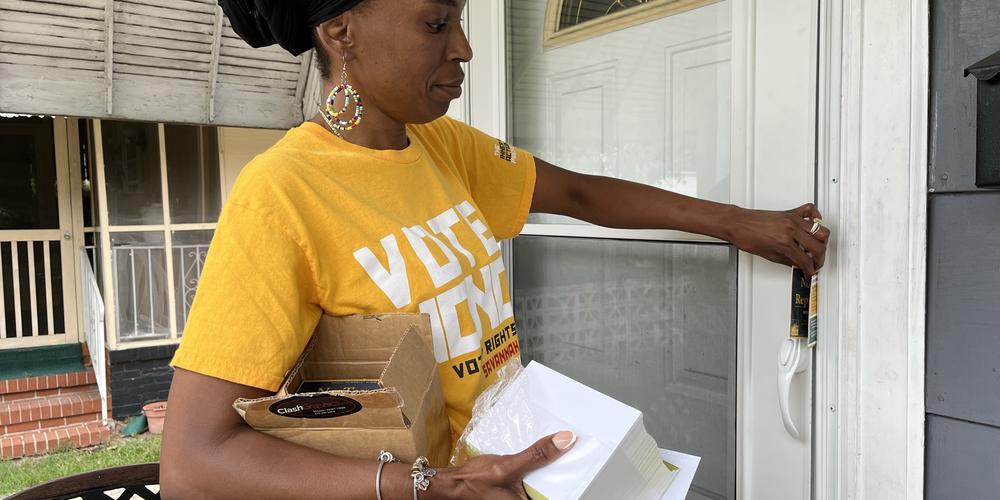
Caption
Kareemah Hanifa places a flier in the door of a house in Augusta as part of the vote in my honor canvassing effort.
Credit: Amanda Andrews / GPB News
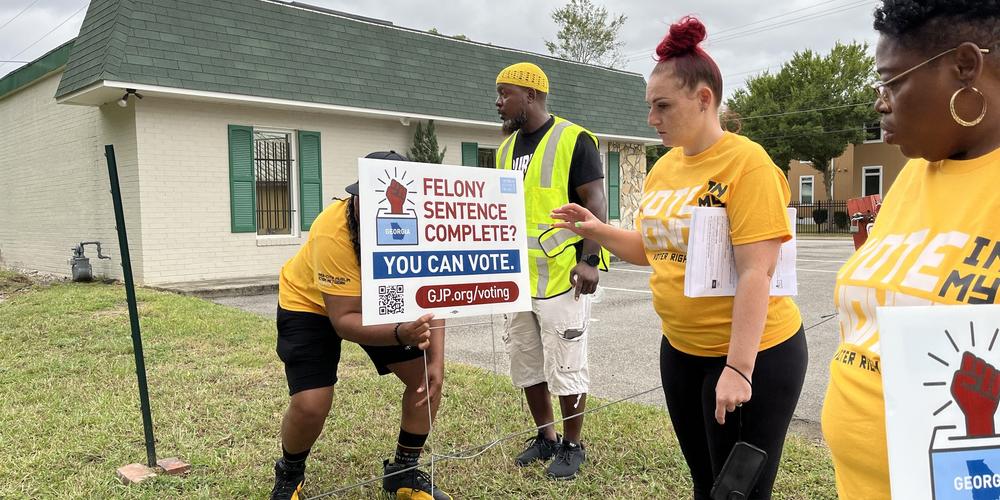
Caption
Canvassers with IMAN Atlanta place a yard sign in front of a church in Augusta.
Credit: Amanda Andrews / GPB News






